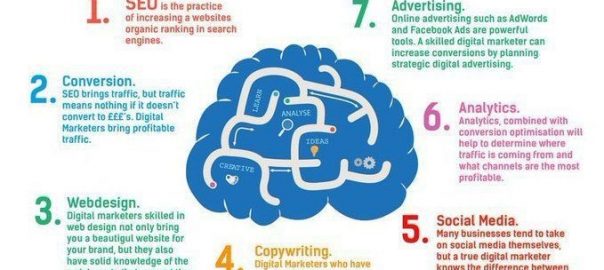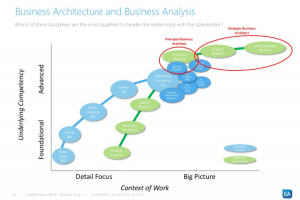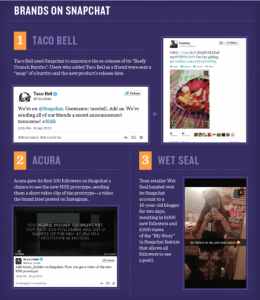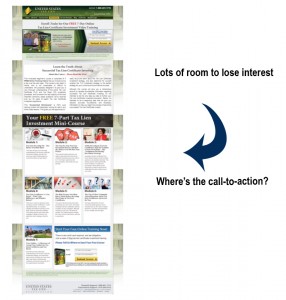— August 15, 2018

Digital marketing has really come a long way in the last decade. Once, it was merely banner advertising and social media, digital marketing is now an integrated set of tactics requiring a diverse skill set, making it distinctly different from marketing that came before it.
Marketing before the Internet

In the prehistoric age before the dawn of the internet, marketing was primarily divided into 3 tasks: strategic marketing (ie. new product development, brand management), advertising, and sales. Concentrated primarily on TV advertising, costs were enormous (over 5 million dollars for a single Super Bowl ad) while performance was mostly guess work and many questioned the ROI of TV advertising.
Often, the three tasks involved in traditional advertising were pretty uncoordinated and often done by different groups within the company or outside vendors, with low integration of efforts. For example, a brand manager would manage the day-to-day operations related to the brand, a sales manager would harness the power of sales people to sell the brand, and an outside agency would product various types of advertising.
This distribution of efforts deemed necessary because different tactics required a different skill set. For instance, at P&G, engineers act as brand managers because they have the technical skills to understand the product, develop new ones, and solve problems that arise related to the brand (for instance, the consumption of colorful Tide Pods by children thinking they were candy). The sales force called on various retailers to urge purchase of the products, answer questions they might have, and ensure delivery. An outside agency (or, in the case of P&G, several outside agencies) handled advertising and market research. Logistics was handled by a transportation department within the company.
The problem, from a profit standpoint, is that there were disagreements between the different marketing facets and rivalry, rather than cooperation, among them. There was a lot of finger-pointing when things went wrong, rather than working to solve problems.
Digital marketing in the early days
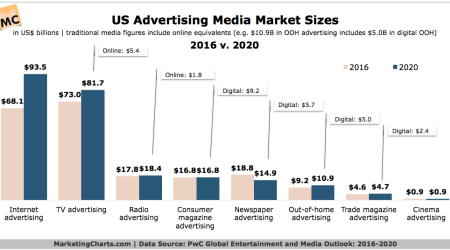
Digital marketing offers a unique way of communicating directly to customers and prospects that can deliver 15-25% improvements on ROI and customer engagement, according to McKinsey. That’s probably why we see the huge increase in spending on digital marketing (see graph) and anticipation that, by 2020, digital marketing spending will surpass spending for TV advertising and come close to exceeding total spending on advertising in the US,
Although, as we saw with traditional marketing, up to 85% of firms state they are unable to achieve anything close to this ROI. In the early days of digital marketing, distribution of marketing efforts followed a similar pattern, with tactics spread across various departments or individuals with different skill sets. There was, and still is, a strong sense of rivalry and turf warfare among the individuals and departments performing various tasks. In part, this was a function of training issues and the demands for various tactics involved in digital marketing.If you take a look at the infographic below, you see some of the key elements of digital marketing. In the early days, some of these tactics were given to technical folks, especially coders and developers, who had the technical skills to code websites, create metas and other tasks related to SEO, and related skills. Advertising and content marketing were handed off to the folks who were trained in traditional advertising. And you had a new crop of folks who specialized in business intelligence attempting to deliver analytics.
Again, you had turf wars. But a bigger problem arose with digital marketing — something we didn’t really see with prior marketing efforts. The total divorce of digital marketing with marketing skills. That means, while operatives had great training in their often technical tasks, they didn’t understand anything about consumer behavior, couldn’t build efforts that encouraged conversion, and often didn’t have much respect or engagement with consumers.
Digital marketing challenges for the 21st century and beyond
Gone are the days when it was effective to distribute tasks across various business units and outside contractors — if there ever were a day when this was optimal. Instead, we need a new breed of marketer … one who has some skills at:
- digital design and development
- analytics
- marketing and consumer behavior
- content creation that drives toward conversion
- ability to optimize social media
This is a new breed of marketer who has a mind that’s both technical and creative … both left and right-brained.
That still leaves the challenge of integration to build integrated digital marketing campaigns that offer a consistent experience from beginning to end, while driving conversion. Here’s how McKinsey conceptualizes this challenge:
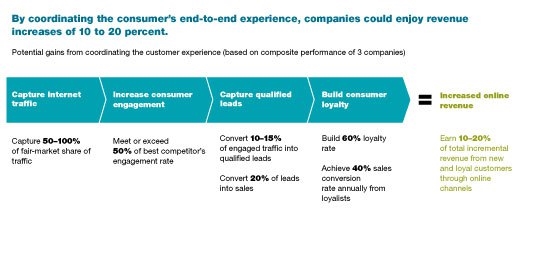
Image courtesy of McKinsey
Another prominent site suggests 7 ways to improve market performance by integration across tactics. They are:
- Know your target market
- Pick channels to reach this market
- Have a consistent look and message
- Create a clear content strategy matching the optimal content across different platforms and channels
- Make sure your messaging is directed toward achieving your goals
- Make sure your teams are working seamlessly together
- Track campaigns
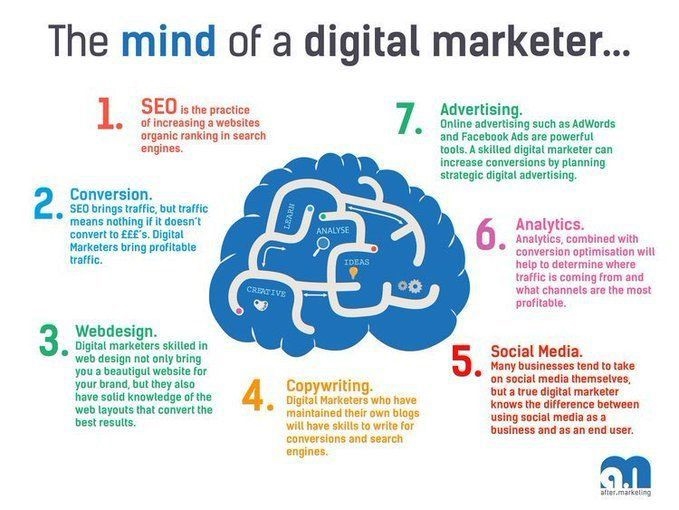
Digital & Social Articles on Business 2 Community
(45)
